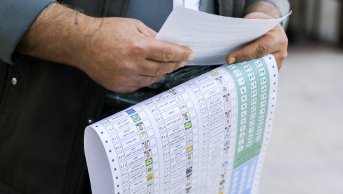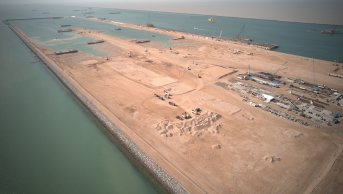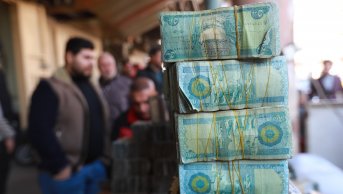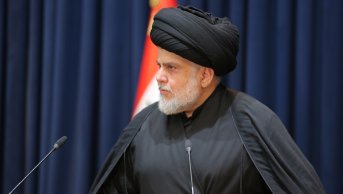The Vote of Confidence Test of Mustafa al-Kadhimi
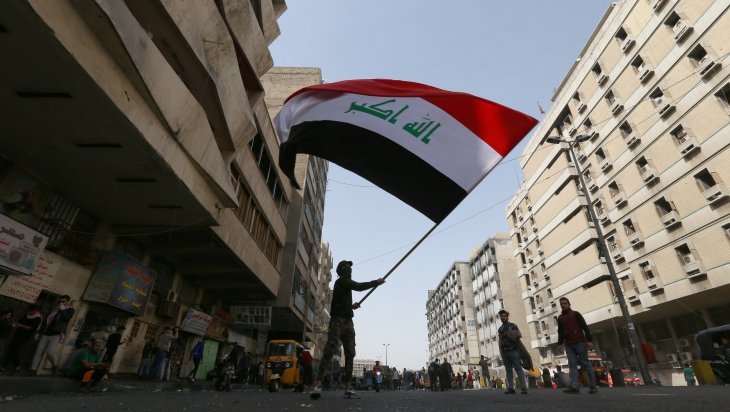
As a result of street demonstrations that started on the 1st of October 2019 in the northern provinces of Iraq, including primarily the capital city, Baghdad, Prime Minister Adil Abdulmahdi retired from office on the 29th of November 2019. The Parliament of Iraq accepted this resignation four days later, on the 1st of December. With his resignation, Abdulmahdi, has become the first prime minister who could not complete his term of office since the new regime had been established in Iraq after the year 2003. During the process of Abdulmahdi’s appointment by the president of Iraq, Barham Salih, the case law foreseen in the Constitution of Iraq has been broken. This was the case law which was established by the Iraq Federal Supreme Court in the year 2010 when the Leader of the al-Wataniya List, Iyad Allawi, won the elections. Thus, following Abdulmahdi, it also has been expected that the prime minister candidate would be designated as the common candidate of all blocks, just as was done with the method used during the tasking of Abdulmahdi. However, the Victory Alliance (Nasr), led by the former prime minister of Iraq, Haider al-Abadi, the National Wisdom Movement (Hikmah) led by Ammar al-Hakim and the Saairun Alliance (Movement), led by Mukteda al-Sadr, withdrew their support from the government. Consequently, Shiite parties went to the 2018 elections in a more fractured situation than they were in in any elections made since the year 2003. As the biggest block has not been determined at the parliament following the 2018 elections, the leadership competition between the Saairun Alliance and the Fatah Coalition established under the leadership of Hadi al-Amiri with the participation of Hashdi Shabi groups continued. Meanwhile, the constitutional 15-days term for the charging of a new candidate by President Salih lapsed.
Although the constitutional term for charging another prime minister candidate had lapsed, on the 6th of February 2020 President Salih charged Muhammed Tawfiq Allawi, the cousin of the former prime minister of Iraq, Iyad Allawi, and the former minister of communication of Iraq, with forming the government. However, since Allawi could not get the necessary support at the parliament, the parliament could not convene for the vote of confidence.
As a result of the unsuccessful attempt of Muhammed Tawfiq Allawi with forming the government, President Salih charged a politician from Najaf named Adnan al-Zurfi with the task of forming the government. It is known that, during the period when Zurfi was the governor of Najaf, he faced the opposition of Sadr due to the conflicts experienced with the Mahdi Army led by Sadr. Furthermore, Zurfi, who is known as a politician having close links with Washington in the Washington-Teheran axis, faced the opposition of the Fatah Alliance for this reason and could not form the government. However, it is possible to argue that the nomination of Zurfi as a candidate has been preferred with the expectation that he plays a leveraging role in the designation of the name that would be charged by Salih after Zurfi. Thus Zurfi, who could not convene the parliament within the 30 days as foreseen in the Constitution, announced that he withdrew from the task at the end of the term and strengthened the hand of Salih in the matter of the tasking.
Tasking of Kadhimi
After the failed attempts of Allawi and Zurfi towards forming a government, following the resignation of Abdulmahdi, President Salih charged Mustafa al-Kadhimi, the president of the National Intelligence Service of Iraq. Kadhimi’s name was also mentioned during the period when Abdulmahdi was charged. However, he has been accused of giving information to the USA relevant to the killing of the Commander of the Jerusalem Force of Iran Revolutionary Guards Corps, Qassem Soleimani, and the former vice-president of the al-Hashdi al-Shaabi Commission, Abu Mahdi al-Muhendis (Jamal Jafar Ibrahim), by the USA in Baghdad on the 3rd of January 2020. Actors close to Iran prevented that he be charged with the task of forming the government. However, when Zurfi was also unsuccessful, Salih charged Kadhimi the day when Zurfi withdrew. When Ismail Ghaani, who was nominated to the position of Soleimani, visited Baghdad in the days preceding the date when Kadhimi was charged on the 9th of April, it was alleged that Shiite parties had reached a consensus on assigning Kadhimi as the prime minister instead of Zurfi.
Although Mustafa al-Kadhimi said that he would give places to the members of parties in his cabinet, he did not accept the candidates from the parties and determined other selectees himself. This situation would lead to the continuation of the quota system in a different manner. It can be observed that the scores given to ministries would be compared with the number of seats in the parliament and parties represented with a higher number of seats would continue to get more important ministries. As a consequence of this situation, Kadhimi may lose the support of the parties, just as Zurfi lost support when he determined the candidates from parties himself. This is because changes are occurring in the names shared with the public, who are determined by Kadhimi, and it may be argued that the reason of those changes is the intervention of the parties. When Kadhimi had been charged with the task of forming the government upon the visit of Ismail Ghaani, it had been expected that Kadhimi would allow the party candidates to be determined by the parties. Thus, the fact that Kadhimi determines his minister candidates independently from the parties increases the disturbance felt by the parties about Kadhimi.
Cabinet Discussions of Shiite Parties
The Shiites, who became the main actors of the politics in Iraq following the year 2003, entered the 2018 elections very much fragmented in contrast to the situation in the previous elections and they could not come together after the elections to form the government. Especially due to the increasing tension between the USA and Iran, the tension between the Iranian deputies in Iraq and the actors prioritizing the Iraqi identity is increasing. On the other hand, in addition to the ministries that have not been determined in the cabinet, the seat competition continues between Shiite parties that are expected to be represented in 11 ministries. It is expected that the Ministries of Defense and Interior Affairs will be included in the Kadhimi cabinet later. Those ministries could not be determined when the Abdulmahdi cabinet was formed and neither could Allawi and Zurfi add them to the cabinet list. As it is thought that the Ministry of Defense would be given to Sunnis, it may be argued that the uncertainty about the Ministry of Interior may cause an increase of the conflict among the Shiite parties for getting a share of the cake. This is because, although Yasin al-Yasiri, who is close to the National Wisdom Movement, acted by proxy as the Minister of Interior Affairs following the resignation of Abdulmahdi, Muhammed Gabban (2014-2016) and Kasim al-Araji (2016-2018), who worked as the Minister of Interior Affairs in the Abadi cabinet, are members of the Badr Organization participating in the State of Law Coalition at the fourth Iraqi Parliament. Thus, the Badr Organization led by Hadi al-Amiri as well as the State of Law Coalition led by Nouri al-Maliki have requested that the Ministry of Interior Affairs be given to them.
Although ministries are distributed among the parties in general terms, Kadhimi, who does not accept any intervention from the parties regarding the selection of names, first expressed the name of Haris Hasan who is known to be his friend for the Ministry of Foreign Affairs. This is because like Kadhimi, Hasan is also well-educated and is specialized in topics such as sectarianism, identity politics, religious actors and the relaations of state to society. When Kadhimi presented Hasan as a candidate, who is an academician rather than the candidate of a party, he wanted to show that he was “the real boss” of the cabinet and not the parties. Nevertheless, upon the objection of the parties, Kadhimi stepped back and withdrew Hasan from candidacy and showed Abdulkarim Hashim Mustafa as a candidate, a name which is coming from the bureaucracy of the Ministry of Foreign Affairs. This change may be evaluated as the stepping back of Kadhimi as well as the fact that party leaders come into prominence as decision makers.
The Cabinet Discussions of Sunni Parties
Sunni parties also participated to the 2018 elections in a more fragmented manner compared to the previous elections. As a result, Sunnis have been less successful compared to the previous elections in some provinces such as Salahaddin, Diyala and Baghdad where Sunni and Shiite Iraqis live together. Moreover, the Shiite parties participating in elections in those regions also won the seats lost by the Sunnis and thus the symmetry between Sunnis and Shiite deputies changed in favor of Shiites.
Despite this situation, it is expected that Sunni groups will be represented in the Kadhimi cabinet with six ministries. Sunni parties share the view that the six ministries expected to represent them are not enough. On the other hand, parties object to the ministers determined by Kadhimi. Intisar al-Cuburi, Deputy of the National Axis Block led by the president of the Iraqi Parliament, Muhammed al-Halbusi, said “Iraq has been governed in settlement since the year 2003. Some blocks are deciding in the name of other blocks. Blocks should respect each other” and expressed that he did not accept the determined candidates. On the other hand, the Solution Party, which has four seats from Anbar, one seat from Nineveh and one seat from Baghdad, also declared that they would not support the cabinet for the same reason. Despite those declarations, it may be expected that the seat competition in the cabinet will take place among Sunni parties of the Bina Coalition and Islah Coalition.
Cabinet Discussions of Kurdish Parties
Following the year 2003, the Kurdish deputies participating in the Iraqi Parliament have for the first time not been able to unite under a single block. The KDP and PUK have about 40 seats under the Kurdistan list. On the other hand, the Future Block (Group 15) composed of the New Generation Movement (Newey Nwe) under the leadership of Shahsuvar Abdulvahid, the Goran (Change) Movement under the leadership of Omer Said Ali, the Kurdistan Islamic Group (Komal) under the leadership of Ali Bapir and the Kurdistan Islamic Union (Yekgirtu) under the leadership of Salahaddin Bahaddin, has 15 deputies. Therefore, the fractionation between Kurdish blocks is becoming even deeper and both blocks lay claim for the Kurdish representation in the cabinet. Because the president, Barham Salih, has been elected from the PUK and the vice president of the Parliament, Bashir Haddad, has been elected from the KDP, the Future Block desires to have a share from the ministers that would be selected from the Kurdish quota. However, since Kurdish ministers have been selected from the KDP and PUK in the Abdulmahdi cabinet as well, the KDP and PUK assert that the ministers to be newly appointed should be chosen from their parties and even that the minister candidates should be determined by the parties.
Although, with the effects of the demonstrations, Allawi, Zurfi and Kadhimi expressed that the quota system was damaging politics, the quota system has been maintained somehow in the context of the relations with Kurds. The KDP lays down the precondition that Fouad Hussein continues to work as the Minister of Finance in the cabinet. Thus, it is alleged that Allawi could not receive the vote of confidence since he did not accept this condition of the KDP. Therefore, the insistence of the KDP on Hussein as well as the insistence of the Future Block on ministries weaken the Kurdish unity against Kadhimi and has a leverage effect on the determination of candidates by Kadhimi. However, due to the arithmetic of KDP and PUK at the parliament, it may be argued that Kadhimi would start the negotiations “indebted”.
The Representation of Turkmens and Christians at the Cabinet
It is expected that Turkmens and Christians will be represented at the cabinet to be formed. In contrast to the previous taskings of President Salih, Kadhimi’s charge gave the impression that a wider consensus had been reached. Although there are two blocks consisting of Turkmen deputies at the Iraqi Parliament; as the head of the Iraqi Turkmen Front (ITF) and the deputy of Kirkuk Erşat Salihi is at the presidential palace, it is argued that the ITF would have a guiding influence upon the Turkmen minister that would take place at the cabinet. However, although Gada Muhammad Hamid is a name determined outside Turkmen politics, it is known that the Turkmen minister candidate is close to Salih. Furthermore, the minister candidate Hamid comes into prominence as a person who is not known by Turkmens and that even stays outside Turkmen regions. On the other hand, it may be argued that the tasking of Hamid in a ministry that would be newly established gives indication of a passive ministry process.
The Ministry of Migration and Migrants, which is expected to be given to Christians, ranks among the important ministries since this ministry is dealing with about 1,4 million migrants and about 4 million displaced people who could turn back to their homeland according to the data of the International Organization for Migration. On the other hand, giving this ministry to Christians may be evaluated as more than merely symbolic tasking as it is expected to have an important access to money due to international financing despite the falling oil prices.
Will Kadhimi Be Able to Form the Government?
Mustafa al-Kadhimi, who has been charged on the 9th of April 2020, has to receive the vote of confidence within 30 days before the 9th of May. All the groups raised objections on the method used to prepare the Kadhimi’s candidate list of 19 ministers, which appeared in the Iraqi press. Bader al-Ziyadi, the deputy of the Saairun Block expressed the challenge faced by Kadhimi by saying “It would be hard to get the approval of the parliament for the candidate cabinet submitted by Kadhimi”. It is argued that this is because the candidate cabinet has been disapproved when the representatives of seven Shiite blocks gathered at the house of Hadi al-Amiri in Baghdad. These were composed of the Saairun Block, the Fatah Block, the Hikme Movement, the Victory Coalition, the Virtue Party, the State of Law Coalition and the Ataa Movement led by the head of the National Security Council, Falih al-Fayyadh.
Therefore, it may be necessary that the 19 names placed on the list are completely changed so that the Kadhimi cabinet receives a vote of confidence. Moreover, it is proposed that Kadhimi would determine three minister candidates for each ministry and that he would ask the parties to choose their candidates among those names. After that, is has been declared that Kadhimi would go to Erbil to discuss the names of Kurdish ministers. Shiite and Sunni groups also laid down the condition to determine their minister candidates to support the cabinet.
However, the fact, that the budget transfer of the Kurdistan Regional Government of Iraq has been stopped prior to the Erbil visit of Kadhimi, may be evaluated as a step taken to strengthen the hand of Kadhimi prior to his visit. The fact, that the said decision has been taken by the Council of Ministers although the KDP insists on the Ministry of Finance and the acting minister of finance, Fouad Hussein, is from the KDP, may have a leveraging effect on the KDP, which has 25 seats in the parliament.
A minimum of 166 votes in favor is needed in order to receive the vote of confidence in the Iraqi parliament which consists of 329 seats. When the existing parliamentary arithmetic is taken into consideration, the government can be formed with the support of the Saairun Coalition, the Fatah Alliance, the Victory Alliance, the State of Law Coalition together with the KDP and the PUK. One of the general opinions formed following the 2018 elections has been to form a majority government. Since Kadhimi is a person coming from the outside of politics and the political fragmentations have increased, it is not expected that he would be able to bring together all the parties. This situation shows that, although the government receives the vote of confidence, this could not be a government of national unity. Considering the process experienced during the determination of the ministries and the fact that the tension between the USA and Iran increases the fragility in the politics of Iraq, it may be argued that the fracture among political groups would develop even deeper even though the government is formed.
It is argued that the Fatah Coalition has sent an ultimatum to Kadhimi for him to change the candidates. As a result of this situation, in case Kadhimi does not step back, the Fatah Coalition, which is expected to be one of the driving forces of the government to be formed, may withdraw its support and the initiative of Kadhimi to form the government may fail. The fact that Kadhimi makes changes in his cabinet due to the insistence of the parties may be evaluated as his defeat facing the quota system. Even if Kadhimi steps back against the pressure of political parties and his cabinet receives the vote of confidence, the continuation of the government would be dependent on maintaining the support of the parties. Just as Abdulmahdi found, Kadhimi does not have a block in the Parliament and thus he would want to maintain the support of the blocks in order to be able to remain in office. As a result of this situation, Kadhimi may pursue a balanced policy, considering the demands of the parties, and tend to satisfy all the groups like Abdulmahdi or he may make concessions to all groups by allowing himself to be influenced from the disputes among groups.
On the other hand, although the demand of demonstrators with respect to the renewal of politics is interpreted as the change of political characters, the pressure on politics decreases as demonstrations have ended due to the pandemic of the new type coronavirus. In addition, the falling oil prices lead to challenges in the payment of the civil servants’ wages. Thus, although Kadhimi receives a vote of confidence at the Parliament, it may be argued that his two-years term of office would be difficult.

